ASARECA rolls out training to scale Black Soldier Fly farming to cut fish feed costs
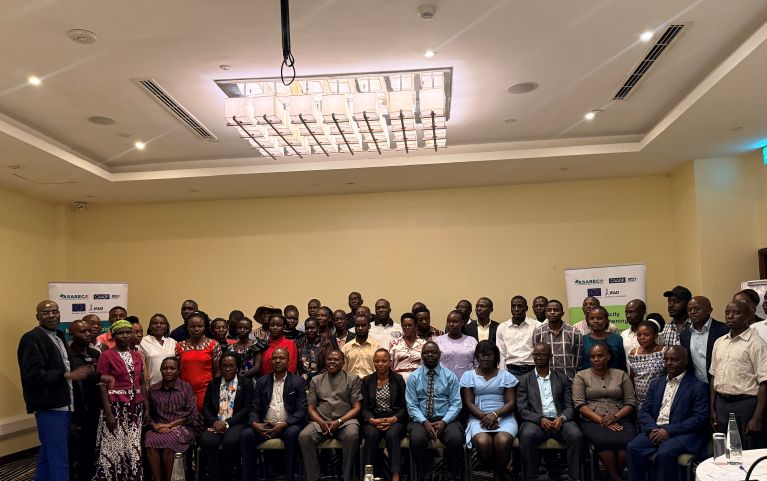
The Association for Strengthening Agricultural Research in Eastern and Central Africa (ASARECA) has launched a four-day practical training to promote the mass rearing of black soldier flies (BSF) as a low-cost, sustainable protein source for fish feed production in Uganda.
The workshop, running from October 21–24 in Kampala, brings together lead fish farmers, agro-input dealers, and extension workers from the Lake Victoria Crescent Aquaculture Innovation Platform, which covers Mukono and Wakiso districts. The initiative seeks to address the high cost of fish feed by promoting BSF-based formulations that can boost aquaculture productivity while reducing environmental waste.
The training is being implemented under ASARECA’s Comprehensive Africa Agriculture Development Programme (CAADP-XP4) and the AIRTEA Project, both funded by the European Union through the IFAD-managed DeSIRA initiative and the ACP Innovation Fund.
Officiating at the launch, Maxwell Onapa, Commissioner for Entomology at the Ministry of Agriculture, Animal Industry and Fisheries (MAAIF), hailed the initiative as timely given the rising cost of protein in animal feed systems and the potential of circular economy solutions.
“This is what makes the integration of BSF into our animal feed systems important,” Onapa observed.
ASARECA notes that using BSF larvae as an alternative protein ingredient in animal feeds offers a climate-smart, circular economy solution for smallholder farmers. The larvae efficiently convert organic waste into high-value protein, reducing both feed costs and environmental pollution.
Participants will receive hands-on training in BSF breeding, fish feed formulation, and the construction of BSF production units. The programme will also include a field visit to the Centre for Insect Research and Development (CIRD) in Kawanda, Wakiso, which hosts one of the region’s leading demonstration farms.
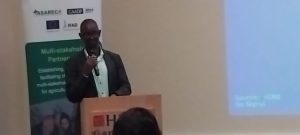 “This four-day training is a vital part of our mission at ASARECA to transform agriculture for improved livelihoods across the 15 countries in Eastern and Central Africa,” said Dr. Joshua Okonya, the Program Officer for Technology Adoption and Innovation at ASARECA. “The challenge of climate change and flood security in East and Central Africa is significant, and it demands innovative, community-focused solutions. That is precisely why we are gathered here, focusing on the Insect-Fish farming for smallholder farmers.”
“This four-day training is a vital part of our mission at ASARECA to transform agriculture for improved livelihoods across the 15 countries in Eastern and Central Africa,” said Dr. Joshua Okonya, the Program Officer for Technology Adoption and Innovation at ASARECA. “The challenge of climate change and flood security in East and Central Africa is significant, and it demands innovative, community-focused solutions. That is precisely why we are gathered here, focusing on the Insect-Fish farming for smallholder farmers.”
According to ASARECA, the activity contributes to regional efforts to scale up gender-responsive and climate-smart innovations across Eastern and Central Africa. The CAADP-XP4 project, now in its final year, continues to deliver outputs that strengthen agricultural innovation systems, build multi-stakeholder partnerships, and encourage investment in climate-relevant food systems.
The training also targets women and youth farmers to increase their participation in aquaculture innovation platforms, in line with the AIRTEA Project’s focus on inclusive technology adoption. Participants will receive BSF starter kits to establish community-level production units.
Expected outcomes include increased adoption of BSF technology, enhanced farmer knowledge in sustainable fish feed production, and stronger collaboration within the Lake Victoria Crescent Aquaculture network.
ASARECA officials say the initiative will not only boost aquaculture productivity but also contribute to rural incomes and food system resilience across Uganda and the wider region.


 Equity Bank Uganda set to close 2025 on firmer footing as clean-up phase gives way to growth
Equity Bank Uganda set to close 2025 on firmer footing as clean-up phase gives way to growth
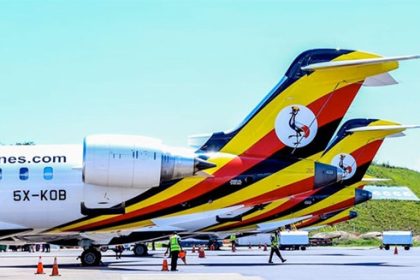 USA–Canada certification dispute could expose Uganda and regional airlines to regulatory risk
USA–Canada certification dispute could expose Uganda and regional airlines to regulatory risk
 KPMG flags widening execution gap as tech leaders bet on AI maturity, talent and partnerships
KPMG flags widening execution gap as tech leaders bet on AI maturity, talent and partnerships
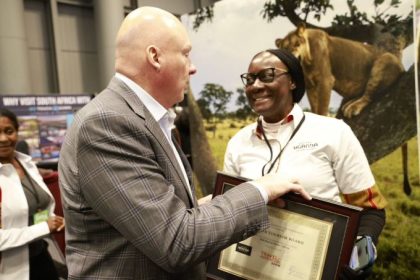 Destination Uganda clinches “Best in Show – Africa” at New York Travel & Adventure Show
Destination Uganda clinches “Best in Show – Africa” at New York Travel & Adventure Show
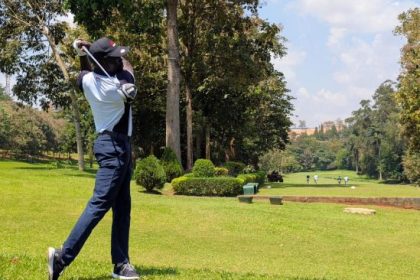 Uganda’s Kibirige edges closer to global golf stage after strong PGTI Q-School showing in India
Uganda’s Kibirige edges closer to global golf stage after strong PGTI Q-School showing in India
 Breathtaking Uganda unveils curated Easter getaway to Zanzibar
Breathtaking Uganda unveils curated Easter getaway to Zanzibar